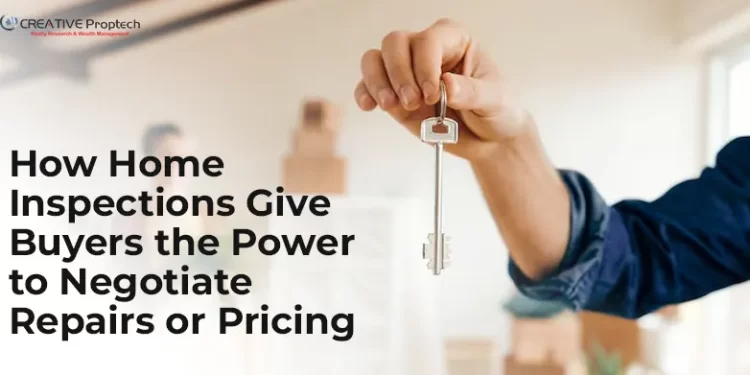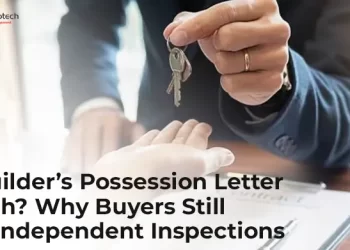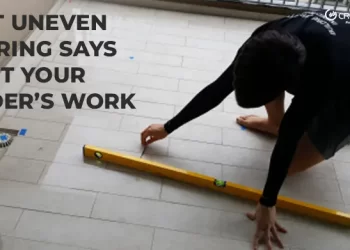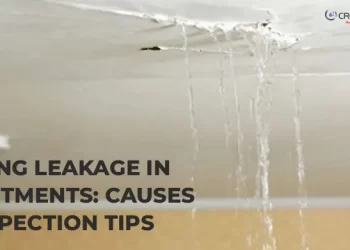How Home Inspections Give Buyers the Power to Negotiate Repairs or Pricing
Buying a home is one of the biggest financial decisions you will ever make. But what if the dream home you’re investing in has hidden issues like plumbing leaks, poor electrical work, faulty waterproofing, or structural weaknesses?
This is where a professional home inspection becomes your strongest negotiation tool. It provides detailed insights into the property’s condition, helping you make informed decisions and secure the best deal whether it’s repairs, maintenance commitments, or a price reduction.
Why Home Inspections Strengthen Buyer Negotiation Power
A home inspection empowers the buyer in three major ways:
- Reveals defects that are not visible during a quick site visit
- Quantifies repair costs, giving you a financial basis for negotiation
- Shows professional proof that can’t be denied by the builder or seller
With a detailed inspection report, the buyer is no longer negotiating based on assumptions but on evidence.
Common Issues Found During Home Inspections
These are some of the most frequent problems detected in Indian apartments:
- Water seepage and dampness on walls or bathroom slabs
- Cracks in beams, slabs, tiles, or walls
- Uneven flooring leading to tripping hazards and poor finish
- Low-quality plumbing, loose fixtures, and improper slopes
- Electrical safety issues like high earth resistance or exposed wiring
- Poor waterproofing leading to future leakage and mold growth
- Improper window and door alignment affecting security and insulation
Most of these issues are not visible during possession unless inspected by trained professionals using the right tools.
How a Home Inspection Becomes a Negotiation Win for Buyers
1. Helps Negotiate Repairs Before Taking Possession
When issues are identified early, you can request the builder to:
- Fix the listed defects
- Replace poor-quality components
- Conduct rework and provide proof of corrections
This ensures you receive the home in its best possible condition.
2. Strengthens Your Case for a Price Adjustment
If the builder cannot complete repairs before the handover, buyers can negotiate:
- Pricing discount equivalent to repair cost
- Reduction in payment milestones
- Future maintenance commitments in writing
Every defect translates into savings or compensation.
3. Prevents Future Legal and Repair Expenses
Skipping inspection means:
- You accept defects without even knowing
- Repairs later become your responsibility
- You may spend significantly more post-occupation
A one-time inspection protects you from long-term financial burden.
4. Gives You Confidence & Peace of Mind
The final decision becomes easier when you know the exact condition of the home you’re paying for.
No doubts. No surprises. No unnecessary bargaining stress.
Real Example of Inspection Helping Negotiation
A buyer in Mumbai discovered waterproofing flaws and improper electrical earthing through a home inspection. Repair estimates were calculated professionally.
Result: Builder agreed to complete repairs before handover + provided written assurance, saving the buyer a major future expense.
Stories like this are very common in ready-possession flats today.
Why This Matters More in Mumbai & Pune
Fast-paced construction, high-rise buildings, and multiple subcontractors often lead to finishing defects.
A possession-stage inspection ensures:
- You get what you paid for
- Safety and quality are not compromised
- You have full clarity before making the final payment
In competitive real estate markets like Mumbai & Pune, a buyer with knowledge has the upper hand.
Conclusion
A home inspection is not just a check it is your negotiation weapon.
Instead of accepting the property as-is, you gain the power to:
- Demand necessary repairs
- Secure a fairer price
- Protect yourself from future financial losses
If you’re about to invest in or take possession of a new flat, make sure you walk in fully informed and empowered with a professional home inspection.
FAQs
- Can I still negotiate after the builder gives possession notice?
Yes, as long as defects are documented through an inspection, you can request rectifications before signing handover forms. - Do builders usually agree to repair issues found in inspection?
Most reputed builders address genuine issues highlighted in reports, especially those affecting safety and structural quality. - How long does a home inspection take?
Typically 2–4 hours, depending on property size and number of issues found. - Will the inspection delay my possession?
Not necessarily. Many issues can be fixed before key handover if identified on time, ensuring smoother possession later. - Should I inspect a newly constructed home as well?
Absolutely. Newly built homes often have finishing defects or quality lapses that are risky to ignore.








